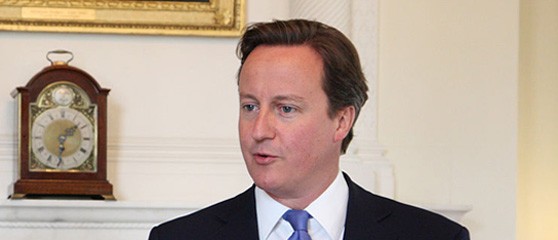This weekend, the International Drug Policy Consortium (IDPC) published an open letter to the World Health Organisation (WHO), calling for continued leadership on drug harm reduction. The letter was jointly signed by 177 civil society and community-led organisations.
The WHO has 194 member states and has been at the forefront of public health for 77 years, often being the first point of contact when outbreaks happen. It has been a key global agency in championing the best practices on several drug-related health programmes, from Opioid Substitution Treatment (OST) delivery to starting needle and syringe programmes, which allow drug users access to sterile needles and syringes. The WHO was the first UN agency to support and adopt the harm reduction approach, making it a long-term champion in the field.
The open letter specifically calls on the WHO to “ensure current funding cuts and other geopolitical pressures are not allowed to weaken the WHO’s role” as a leader in harm reduction for people who use drugs. The letter praises the WHO’s past achievements, emphasising its credibility and expertise. It states that right now, there is a ‘steady increase in countries adopting harm reduction policies and programmes around the world’, making it a critical time to continue support.
There are suggestions in the letter about how the WHO can prove its leadership and show support for drug harm reduction. Following on from the 2025 Commission on Narcotic Drugs, a resolution was adopted which created a 19-person review panel, who would be responsible for reviewing how drug policy commitments are being implemented, as well as considering whether changes are necessary to the global machinery that controls narcotic drugs. The director-general of the WHO is responsible for nominating a member of this panel, so a strong emphasis is made on this opportunity for the WHO to nominate someone with both ‘specific expertise’ in harm reduction and a strong connection with the community of people who use drugs.
WHO under financial strain following US defunding
The WHO is currently under huge financial strain, meaning all areas within public health are at risk of receiving less funding. Huge scalebacks on staff and budgets will mean the ability of the WHO to lead in multiple health-related areas will be far more limited than previously. This poses a danger of certain fields, like harm reduction, being de-prioritised to fit into new budgets.
The strain comes from Donald Trump’s decision to remove the US from the WHO earlier this year, after criticising its handling of the COVID-19 pandemic and claiming that they demanded unfair payments. The decision to leave the WHO had initially been made by the previous Trump administration, but was reversed by the Biden administration. This time round, Trump will successfully complete the 12-month withdrawal period within his presidency.
Having been a member of the WHO since its foundation in 1948, the US pulling out has raised concerns from experts surrounding the short and long-term public health of the US and abroad. This decision will mean the US will lose access to global health databases, leaving gaps in global health coordination and impacting its role as a major global health policy advisor.
In addition to the concerns for the future of public health in the US, its withdrawal is also damaging for other countries. The US was the largest financial contributor to the WHO, contributing 12% of its total approved budget in the 2022-2023 period. By withdrawing, the WHO will not only lose the membership fees paid by the US, but also the significant funding that the US provides.
In May, Tedros Adhanom Ghebreyesus, the director-general of the WHO confirmed that the management team has been cut by half and operations must be scaled back as a result of the US’ withdrawal. The cut to the budget for the 2026-2027 period will be a huge 21%, bringing the budget down to $4.2 billion. However, there is still a $1.9 billion gap in funding even with this reduced budget, meaning the WHO is nearly 45% short, despite cutting staffing costs by 25%. Clearly, these large budget reductions will mean the scope of the WHO will have to be reduced, leaving difficult decisions about what should be prioritised.
Coupled with the American defunding of WHO is the end of USAID programmes worldwide. For thousands across the globe, USAID sustained health programmes that delivered essential harm reduction interventions like needle and syringe programmes and opioid substitution programmes.
Harm reduction leadership is needed now
Speaking to Jamie Bridge, IDPC’s Deputy Director, he told TalkingDrugs on why the WHO’s leadership in harm reduction is essential right now:
“There is a real risk that some of the WHO’s work – particularly the essential areas of health and rights that are more politically sensitive such as harm reduction – is going to suffer as a result of staff cuts and programme mergers, or might be forgotten altogether”.
He also highlights some of the concerns about the future of its internal members:
‘In reality, much of the important work that WHO has done in this field – including its guidance to countries – has been under the auspices of Annette Verster’.
Annette Verster was one of the core members of the WHO’s HIV and hepatitis team, working there since 2006. Before that she had been an AIDS response coordinator in Amsterdam and then Rome since the late 1980s. Vester recently retired, leaving the WHO in July. Following funding cuts, Bridge commented that there are “real concerns about whether her expertise and leadership will be replaced”.
Bridge also underscored that WHO leadership for harm reduction is absolutely critical now, arguably more than ever before due to the widespread health funding cuts worldwide. This year, the Trump administration has demanded an additional $26 billion is cut from addiction and overdose services, after having previously cut $1 trillion in federal funding for lifesaving services, which will directly impact treatment and support for those who use drugs.
While the Trump administration has shown his anti-WHO stance, there are simultaneously anti-WHO campaigns led by independent advocacy groups like Consumer Choice Center. The CCC have shared their scepticism of the WHO, largely surrounding how it spends its money and have stated that it “push[es] bad science when good science is available”. The CCC has even written an article suggesting that Canada should follow in Trump’s footsteps in leaving the WHO, who they believe to have “failed in its primary duties”.
The open letter and its widespread support from civil society organisations makes it clear that this is a pivotal moment for the WHO’s leadership on drug harm reduction. While there has been an unprecedented degree of financial and capacity pressure on the organisation, it continues to be globally respected as an evidence-based institution. Its prioritisation of harm reduction research, principles, and goals will benefit communities of people who use drugs around the world.
The open letter and the full list of signatories can be found here.


